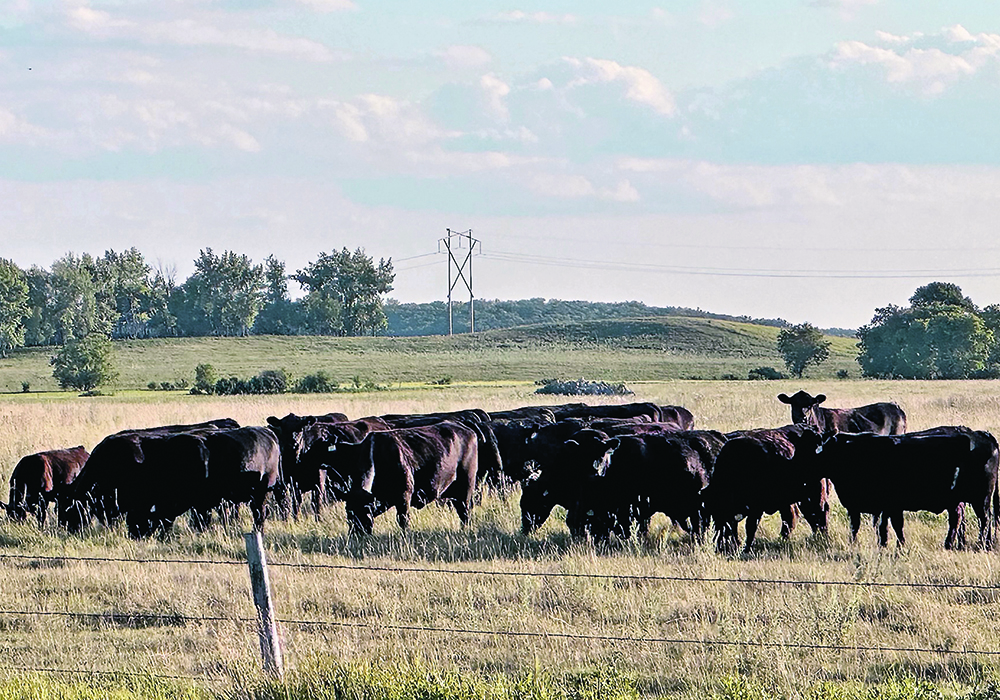Canadian Beef Cattle Check-off Agency applies to join the Scientific Research and Experimental Development incentive
Beef producers could get as much as several thousand dollars per year from Ottawa if it approves access to a federal tax incentive program that encourages investment in scientific research, said an industry official.
There is a total of about $4.3 million of qualifying research conducted annually by the cattle industry, said Melinda German, general manager of the Canadian Beef Cattle Check-Off Agency. The goal is to gain access to the Scientific Research and Experimental Development (SR&ED) tax incentive by 2025 for the 2024 tax year, she said.
The program allows claims as a deduction against income or as an investment tax credit, said a federal statement. The Canadian Beef Cattle Check-Off Agency is exploring which of these will be used by beef producers, said German.
The organization will apply to the Canada Revenue Agency to become an approved entity so that more than 60,000 beef producers across the country can participate in the program, she said. It will be the first step in what German expected will be a lengthy process if approval is granted.
“There’s always a lot of paperwork when it comes to working with government programs, so we need to go through all the paperwork, and set up templates and instructions for producers so that they could make that claim every year.”
However, the paperwork will mostly be conducted by the Canadian Beef Cattle Check-Off Agency rather than producers, said German. It will likely involve an easy process for producers to claim the incentive, which might be as simple as applying a percentage based on how much of their national check-off went to research, she said.
The amount they receive from the federal government will likely depend on the number of head of cattle and how much is allocated to research by the cattle association in their province, she said. “With some producers, it might be $50. Some producers, it could be several thousand dollars.”
If approved, beef producers will join farmers in several other agricultural commodities that are allowed to take part in the incentive program, said German. “The biggest difficulty is administrative cost and burden,” she said.
“We now are at a point where we do think the benefits to producers far outweigh that administrative cost and burden, and so now our next step will be to make applications to the federal government to see if we can continue to move forward.”
The incentive program was discussed during the agency’s annual general meeting Aug. 15 at the Canadian Beef Industry Conference in Calgary. Alberta contains the largest portion of Canada’s national herd and will particularly benefit from the program.
“From an Alberta perspective, we think it’s fantastic,” said general manager Brad Dubeau of Alberta Beef Producers during an interview. “And we encourage the continued exploration because producers being able to write off a portion of their check-off for their taxes is extremely positive, and it gives them added value for why they pay check-offs.”
ABP said last year it could be forced to cut its contribution to the Canadian Cattlemen’s Association by as much as $1 million, or one third of the national total. Check-off refund requests from some beef producers had substantially reduced the funding received by ABP.
CCA approved a three-year agreement March 24 that will lower its funding by about $500,000 this year, which will provide more financial stability to ABP. The new arrangement, which took effect July 1, means ABP’s contributions to the CCA are now based on the funds ABP collects in check-off fees after producer refunds are subtracted.
The CCA previously assessed all provinces on gross funds collected. Producers facing lower profit margins because of rising costs for things such as feed can have mixed feelings about paying check-offs, particularly for large operations where the fees can be a significant expense.
It is important for producers to understand where their money goes and the return on their investment, said German during an interview. “And a lot of it is when we talk to producers, they know the checkoff comes off, but they maybe haven’t really looked into where all the money goes and all of those programs it’s invested.”
The hope is that if the tax incentive is approved, it will help beef producers “explore more where money goes into research, and then maybe accessing that research more, so it’s more of just an overall education and awareness of the checkoff system in Canada,” she said.
The Canadian Beef Cattle Check-Off Agency is also looking at improving the financial compensation given to provincial cattle associations to collect the national portion of each check-off for the agency, said German. An increase totalling $300,000 per year could be divided among them depending on how many cattle they marketed, she said.
“We’ve proposed to provide an increase to them to help offset the ever-growing costs that everyone’s facing today, and our goal here is once again ensure a sustainable check-off mechanism that’s in place now and in the future.”
Dubeau said the proposal recognizes the agency wouldn’t have funding without the provincial associations. “The admin fee is an extremely positive move because the provinces are seeing increased costs, just like everywhere else in the sector.”
















